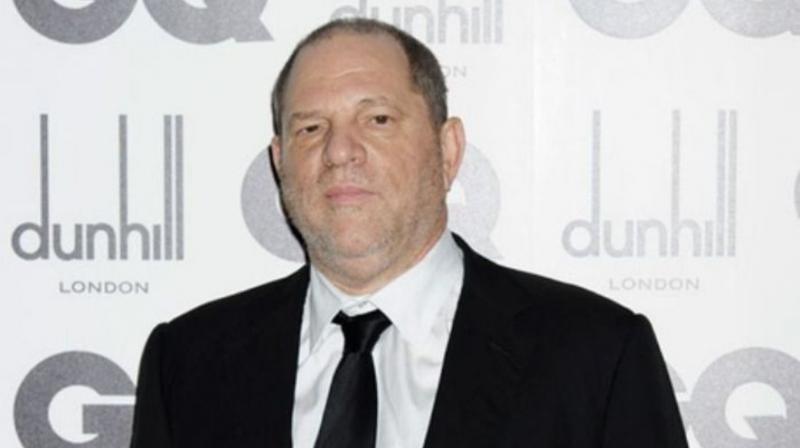Weinstein's sordid saga: Hollywood's watershed

One of the more dubious claims associated with the sordid Harvey Weinstein saga is that the exposure and humiliation of one serial offender somehow constitutes a watershed for Hollywood.
The idea that every other sexual predator in American showbiz will suddenly be inspired to cease and desist sounds like one of those absurdly happy endings that many Hollywood fantasies are constructed around.
The culture of sleaze in which young women have invariably been the victims stretches back to the origins of the nation’s film industry, and it is hard to believe that one particularly offensive producer’s downfall will transform the milieu.
Which is not to say it will make no difference at all. Those prone to such indiscretions will henceforth try to be more discreet. More promisingly, women exposed to unwanted advances or worse will be less inclined to keep quiet about it.
Perhaps the most galling aspect of Weinstein’s case is that his pattern of abuse, allegedly ranging from harassment to sexual assault and rape, appears to have been consistent since the 1980s. Weinstein’s lawyers contend that his indulgences were always consensual, but where consent was conceded it seems to always have been based on physical or psychological coercion.
The victims’ silence, however, was not the only factor that enabled the producer to get away with such behaviour for so long.
His attitude and actions were apparently common knowledge not only among his aides in Miramax and The Weinstein Company but within the industry in general, as well as among the associated media. His enablers were legion, and in most cases their contrition is far from obvious.
The casting couch has long been accepted as part of Hollywood culture, and all too often served as the butt of inappropriate jokes.
The New York Times’ Maureen Dowd recently cited an excerpt from the autobiography of Shirley Temple in which the most famous child star of her era recalls having to cope, at the age of 11, with an associate producer exposing himself to her, while the head of MGM was trying to grope her mother in a nearby office. That was something like 80 years ago.
The sexploitation did not cease with the advent of the feminist movement, and it is unrealistic to assume that it can be wished away just because of Weinstein’s belated comeuppance, especially in the absence of a criminal prosecution; although investigations are being conducted, it is far from clear whether anything will come of them.
But just as the problem is not just Weinstein, it is not just Hollywood either. Nor is it just an American malaise.
And it is not restricted to Bollywood, Lollywood or any of the other showbiz jungles that take their cue from the sleaze industry in Los Angeles.
The exploitation of women as potential sex objects is rife in every industry from the media to textiles.
In far too many societies, not least those that purport to abide by the dictates of Islam, discrimination against women, which manifests itself in any number of ways, is on a different plane altogether, even if it is basically a part of the same pattern.
And when the patriarchy that has reigned supreme for centuries remains intact, it has got to be galling for women, not least in the ‘enlightened’ West, to put up with the notion that ‘post-feminist’ societies are increasingly the norm. Sadly, that’s utter nonsense.
All over the world, the need for feminism to reassert itself will only grow. Harvey Weinstein frequently asked his victims to massage him and/or be massaged by him.
He’s only the tip of an extraordinarily ugly iceberg, though, and the #MeToo Twitter hashtag offers only a partial indication of how wide and deep the disease is in the 21st century.
A Hollywood scandal that is perceived as a local problem cannot suffice as an antidote, as long as the truth continues to be massaged in every other sphere. Humankind may eventually have cause to be grateful for Weinstein’s excoriation, but it could be a long time coming.
By arrangement with Dawn

